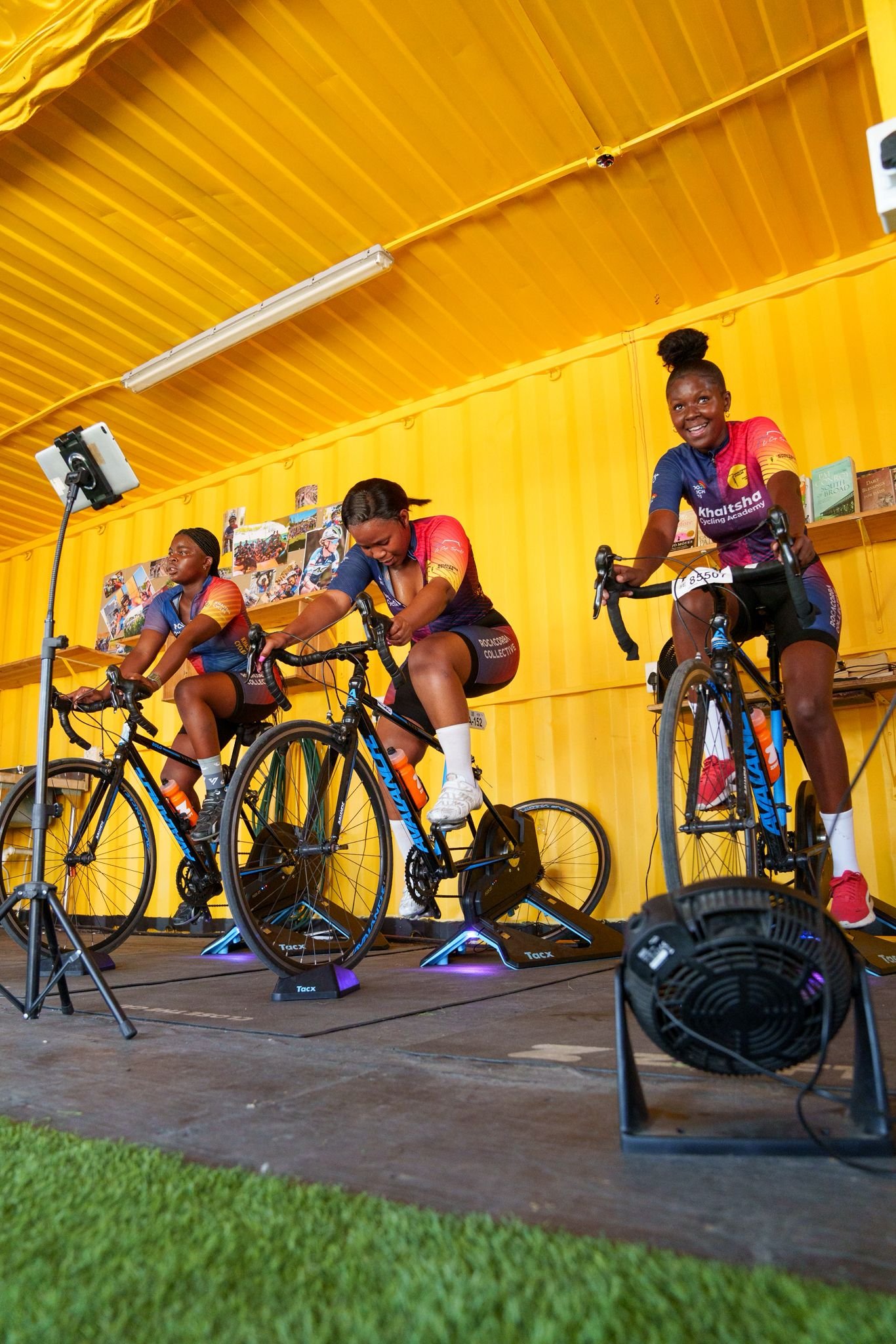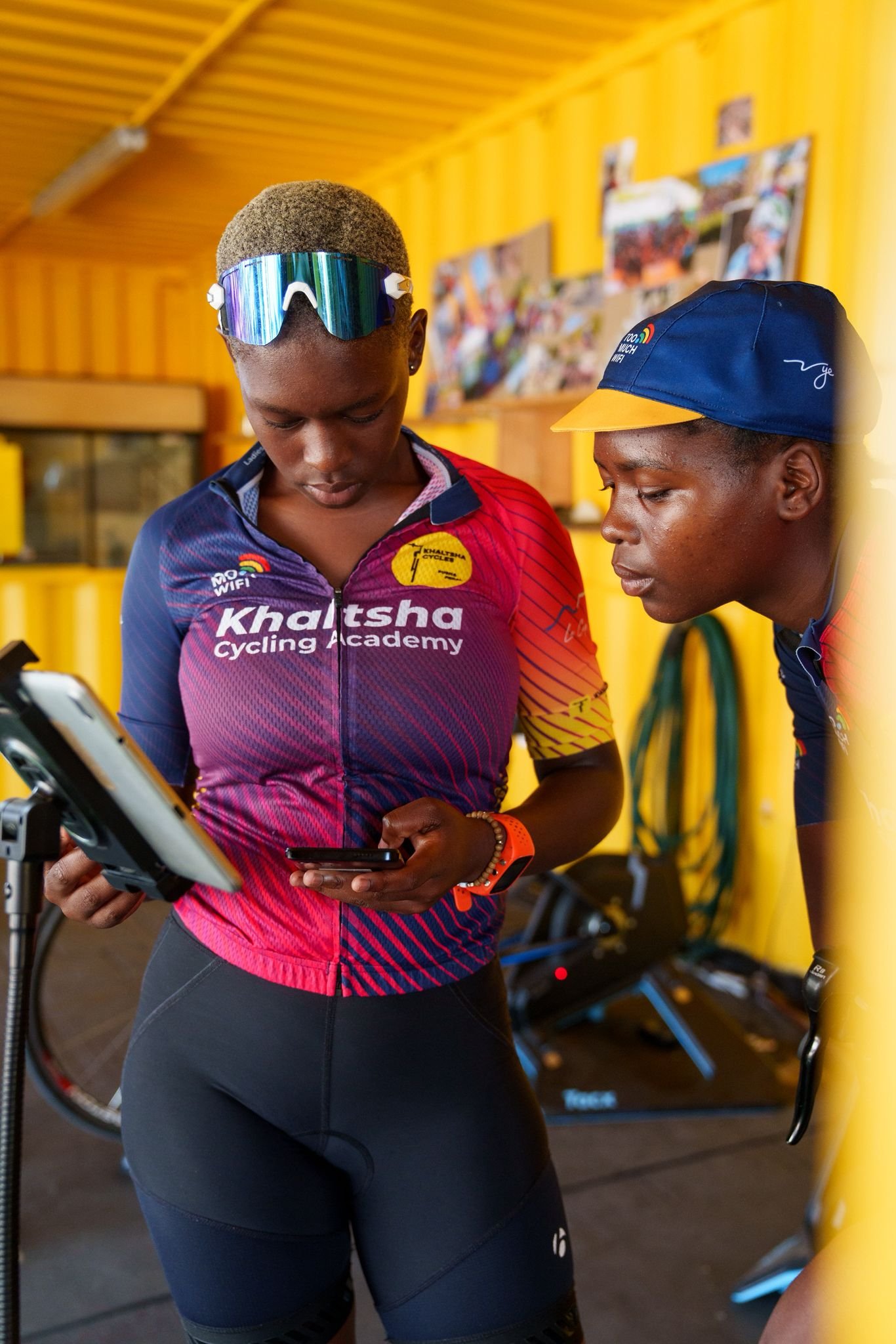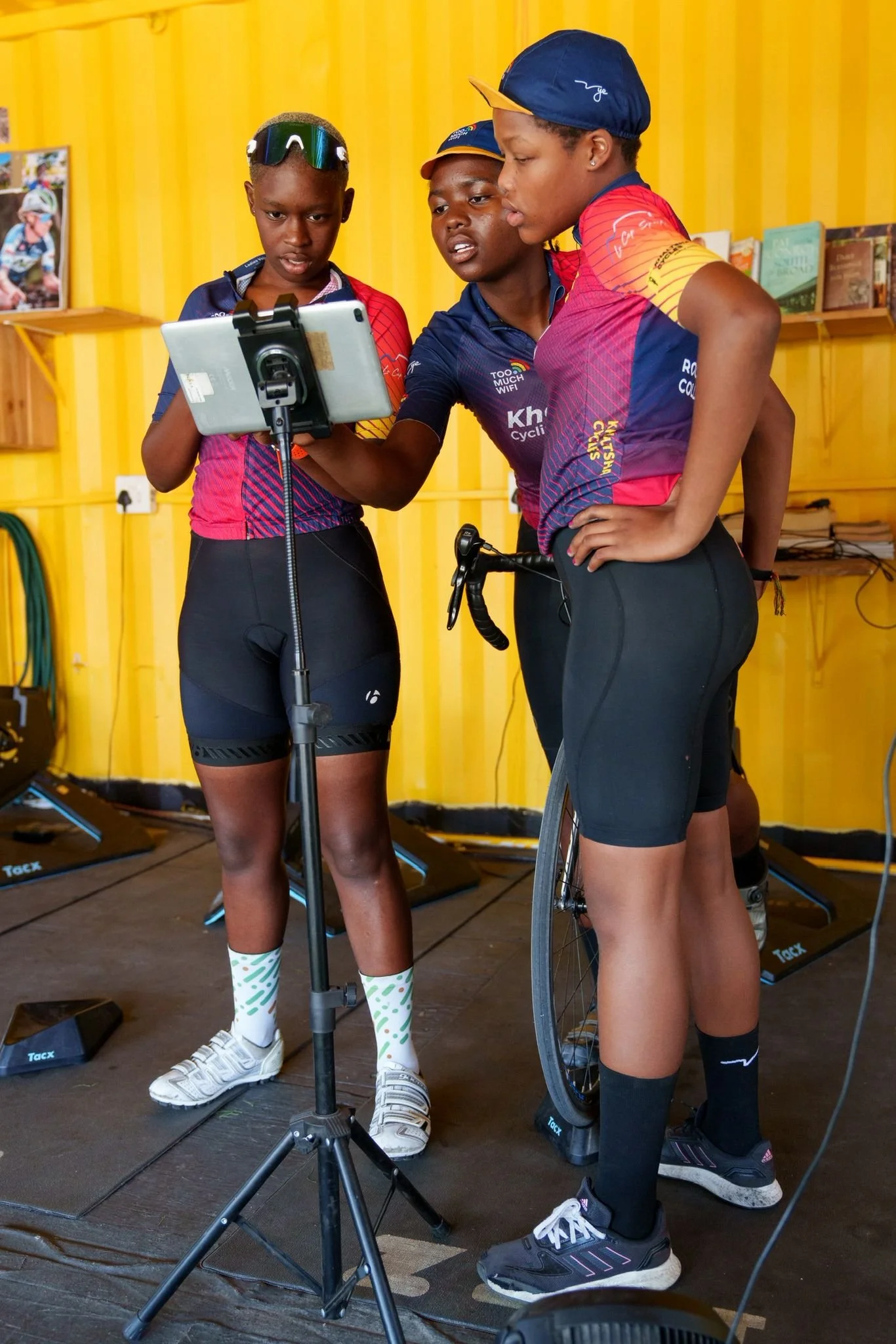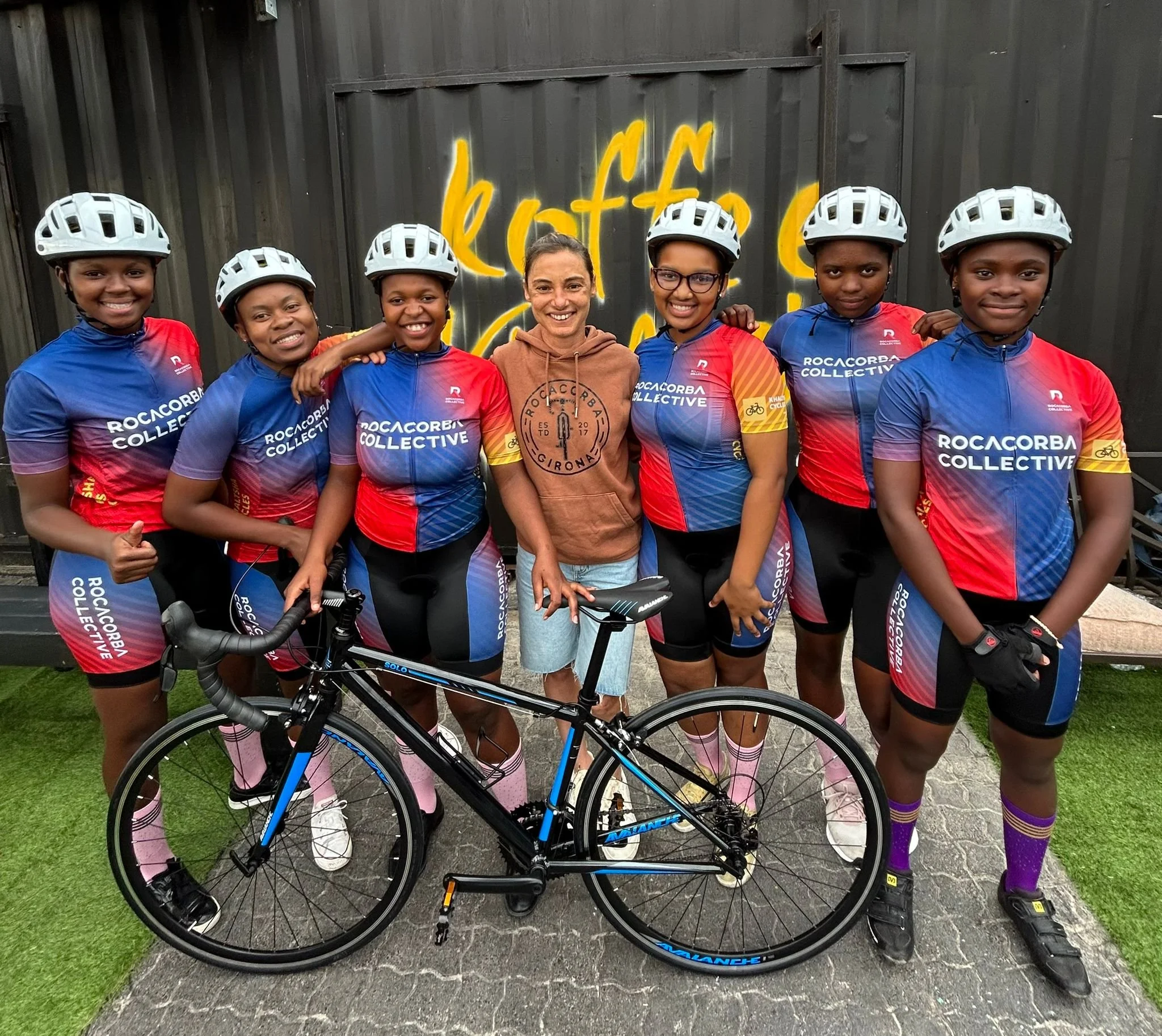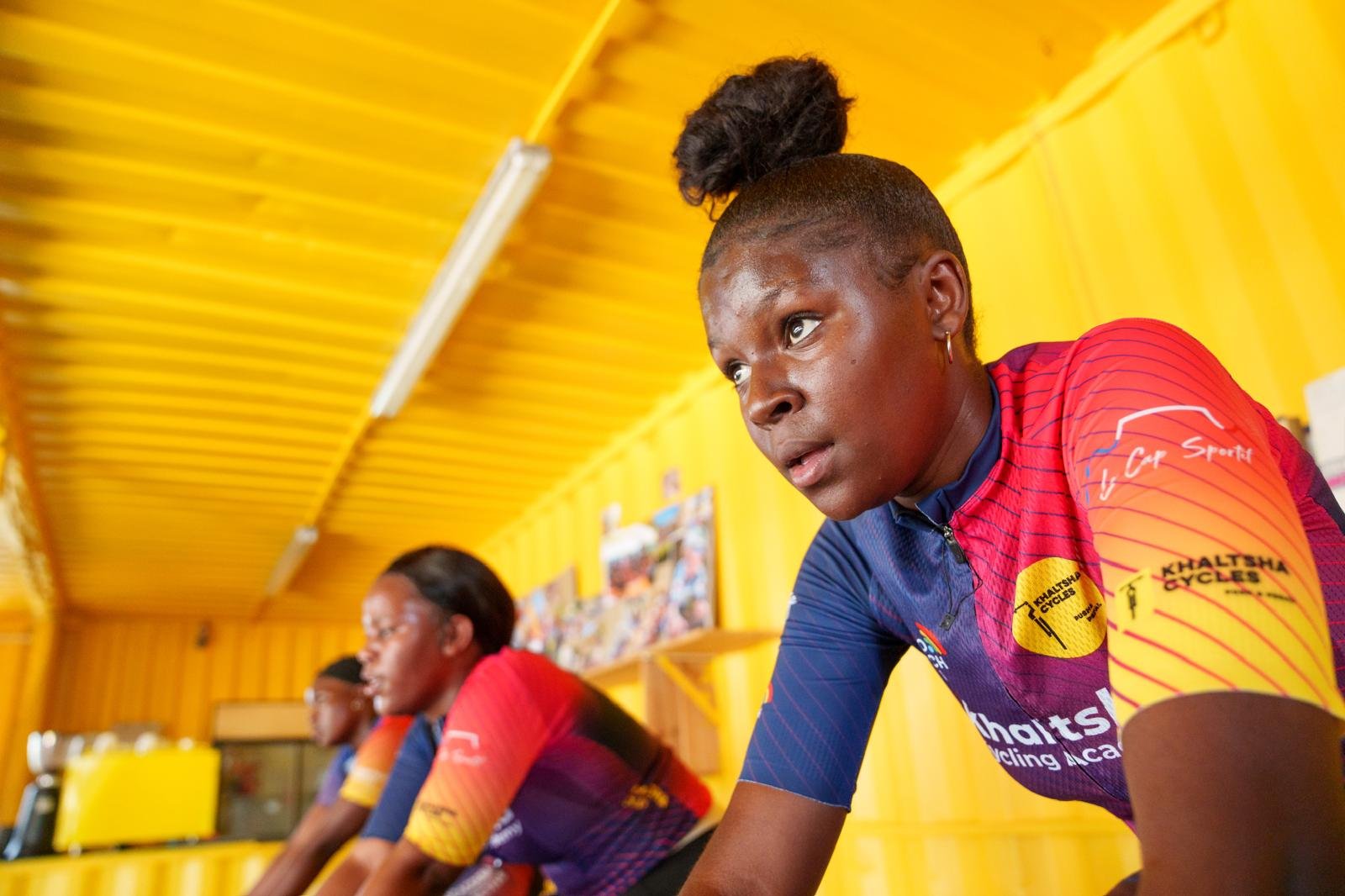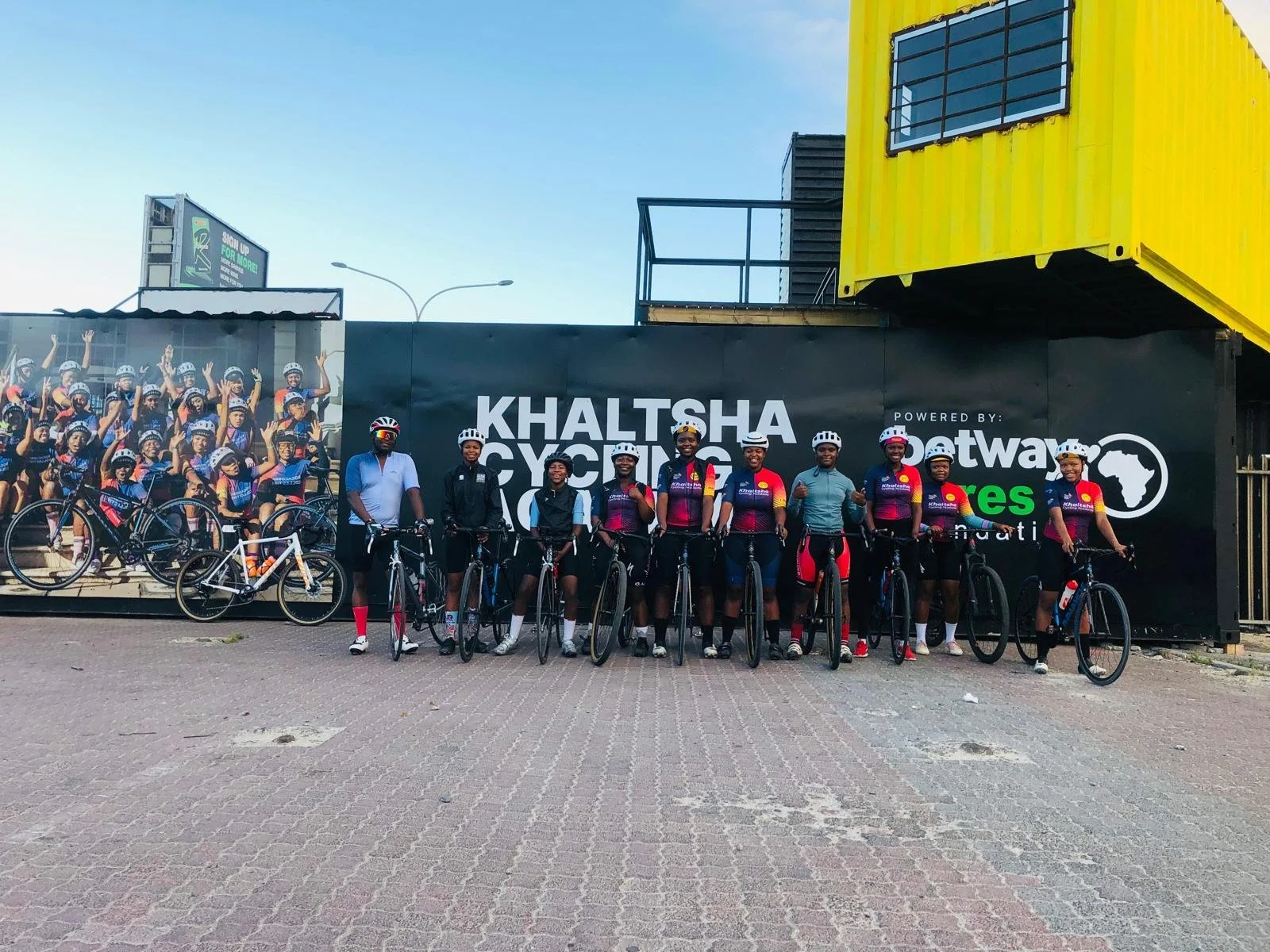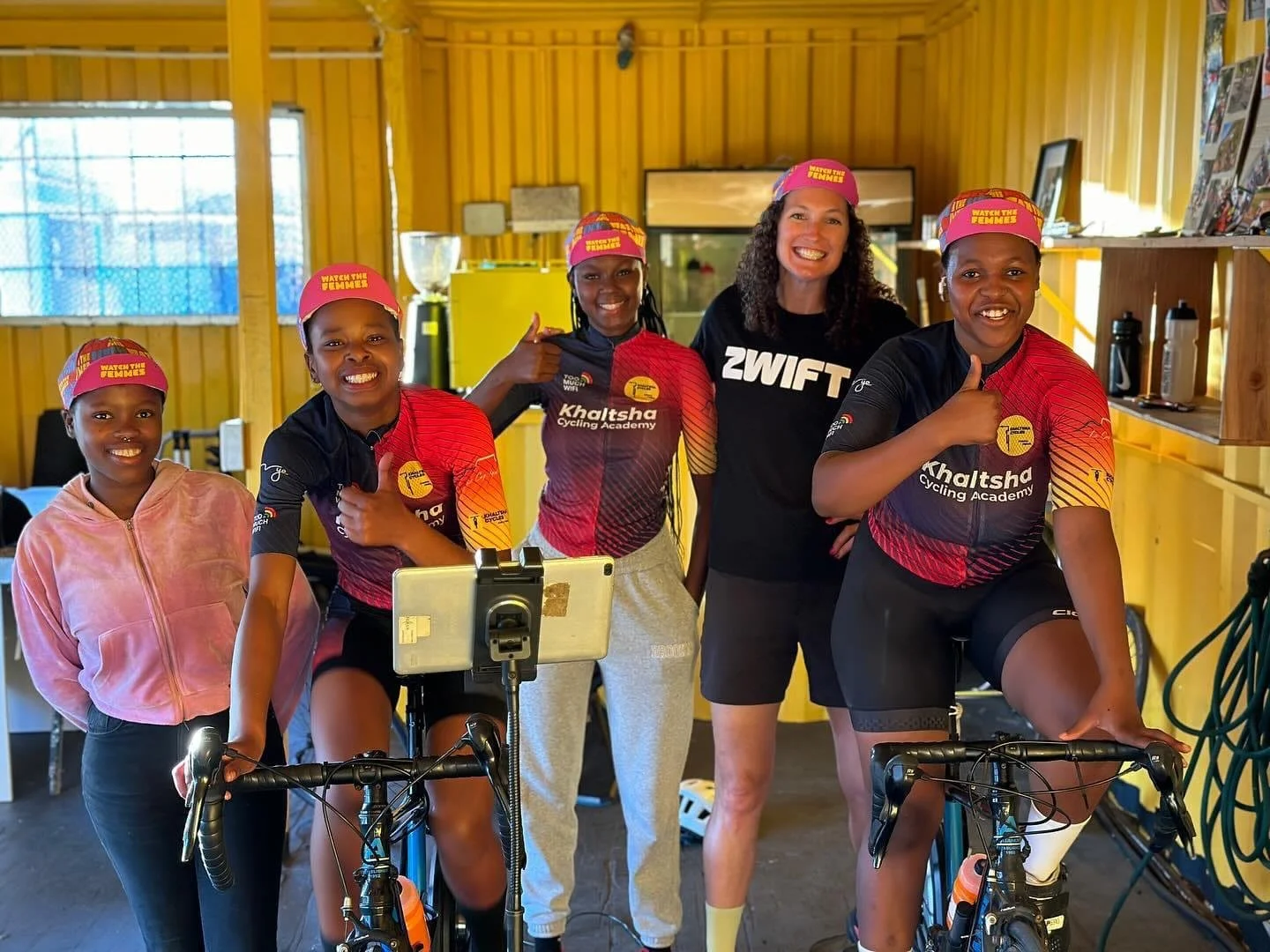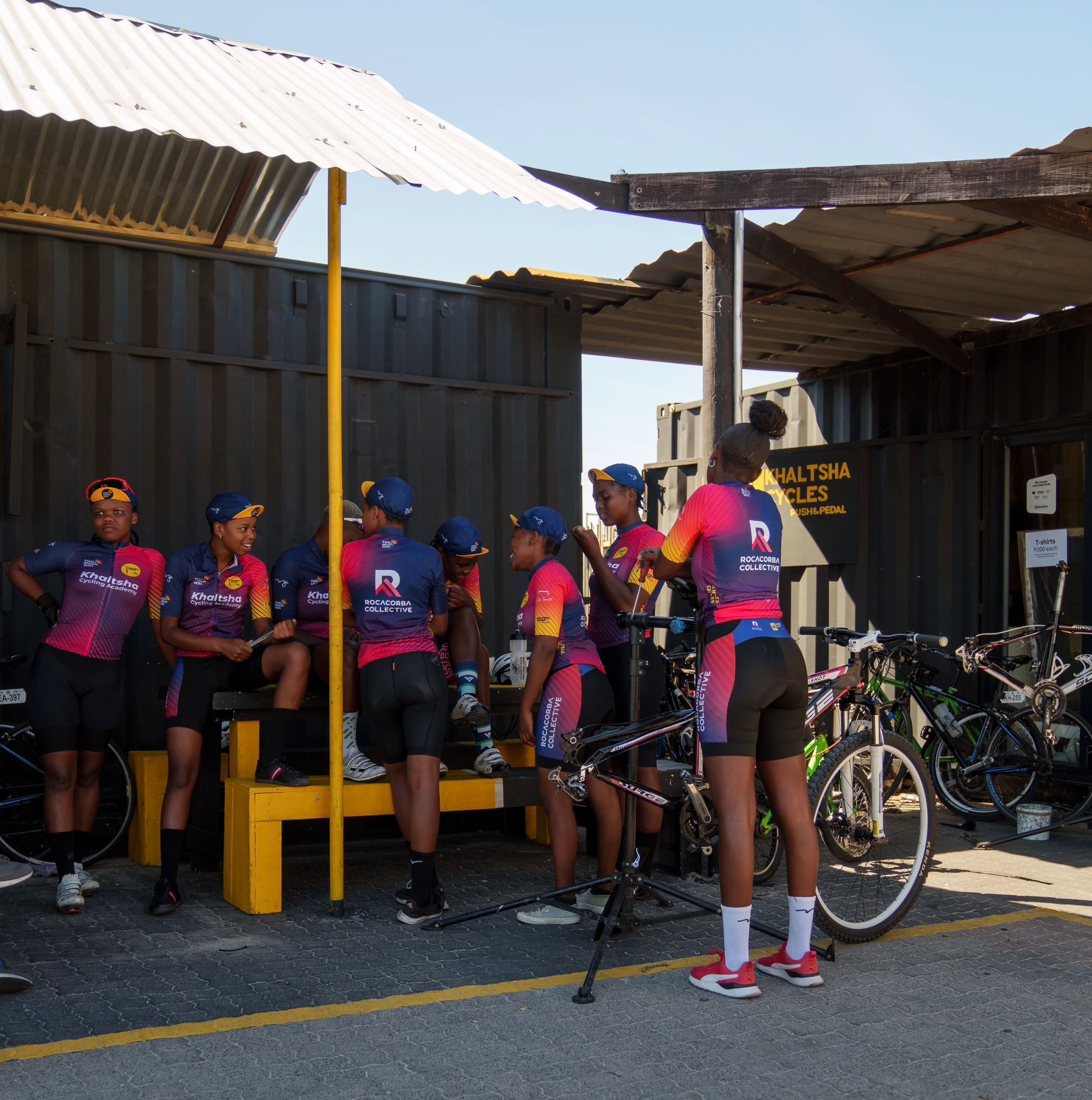Keep the Door Open: Ashleigh moolman Pasio on Africa, Virtual Cycling, and Why Rwanda 2025 Can’t Be Just a Moment
I still really believe in the virtual world—and especially Zwift—as one of the most powerful tools we have to truly globalise cycling. I’ve been saying this for years. I haven’t changed my mind.
Professional cycling has a long way to go when it comes to truly becoming global. Despite all the talk of diversity and development, it remains—at its core—a European sport. Structurally, culturally, geographically. As someone who grew up in South Africa but built my racing career largely in Europe, I see both the privilege and the limitation of that system. And I also see where the real opportunities lie—particularly in the virtual world.
Zwift and other indoor platforms aren’t just training tools. For riders outside of Europe—especially in Africa—it’s the most accessible way to enter the sport. To train. To compete. To measure yourself. To dream a little bigger.
Of course, it’s not perfect. Access to Wi-Fi is still patchy. Power goes out. We’re dealing with real challenges—like the fact that many kids don’t have laptops or smart trainers or even a stable place to ride. But despite that, we’ve got a movement happening. Real people. Real talent. Real stories. And Zwift has already played a role in opening that up.
This year’s World Champs in Rwanda is a huge moment. The first time the event is being held in Africa. That alone is symbolic. But I’m not here for symbolism. I’m here to ask: what happens next? Because my biggest fear is that this is a box ticked and done. That the spotlight fades. That we have a few beautiful Instagram moments and then everyone flies home, and Africa is left exactly where it was before.
We can’t let that happen.
There is so much happening on the ground. There’s raw talent, and I mean real talent. There’s hunger. There’s a love for cycling that’s visceral. You go ride through a township or up into the mountains in Rwanda or Eritrea, and you’ll see it—the joy of the bike, the pride in racing, even when there’s no kit, no food, no support. This is where the sport is alive in its purest form.
But development doesn’t happen by accident. We need real investment. Real structures. One thing I keep pushing for is the creation of local leagues on Zwift and other platforms. Because we can’t keep comparing African riders directly against Europeans when the conditions are so different. It’s not just about power numbers. It’s about what’s behind those numbers.
In Europe, a junior rider probably has a coach, a nutrition plan, recovery supplements, a turbo trainer in their garage, high-speed Wi-Fi, and two parents driving them to races. In Africa? You’re lucky if you’re not riding your dad’s delivery bike. Most of the riders I work with through Khaltsha Academy don’t have consistent access to protein in their diet. They’re literally training from hand to mouth. So when we ask why they can’t hold 4.5 W/kg, we’re missing the point.
That’s why I’m so passionate about levelling the field. Start with local leagues—township vs township, province vs province. Build the base. Build their confidence. Then scale it up. Let African riders race on platforms that don’t punish them for the conditions they can’t control. Let them develop on their own terms, and then help them cross over to international levels when they’re ready and resourced.
And while we’re talking about racing—we need more racing in Africa, not just watching African riders race in Europe. Rwanda 2025 is a perfect opportunity to challenge the status quo. Let the European peloton experience racing out of its comfort zone. In the heat. At altitude. On unfamiliar roads. With different foods, languages, and cultures. That’s the reality African riders face every single time they leave home to chase their dreams.
But here’s one of the biggest barriers we rarely talk about in depth: visas.
For African riders, just getting to Europe legally is an exhausting process. The easiest option—ironically—is a three-month tourist visa. That’s what most of the riders rely on at first. It gets them into the Schengen Area, but it’s incredibly limited. You can’t work on it, you can’t open a bank account, and after three months, you’ve got to leave—or you’re breaking the law. So while it gets you in the door, it doesn’t get you a seat at the table.
Once a rider starts progressing—signs with a team, gets invited to more races—they hit a wall. Because now they need a proper visa. A residence permit or working visa. And this is where the system becomes almost impossible to navigate. There’s no centralised pathway. Every country has different rules, different forms, different timelines. You can’t just walk into a European embassy and say, “I’m a cyclist, here’s my contract.” It’s months of back-and-forth. Birth certificates. Proof of income. Insurance. Sponsorship letters. Sometimes even a minimum salary threshold that most young African riders don’t meet.
And teams? Most of them don’t want the headache. They’d rather sign a European rider who can move around freely, who doesn’t need help with immigration or embassy paperwork. I’ve seen riders not get signed—not because of talent, not because of results, but because the visa process is just too hard. It’s disheartening. It’s systemic. And it’s a major reason why the African talent pipeline struggles to break into the pro scene.
Even once riders get their foot in the door, they live with the constant fear of overstaying, of paperwork delays, of being sent home just as they’re hitting form. It’s mentally exhausting. Imagine being 20 years old, thousands of miles from home, trying to train, race, perform—and constantly worried that your visa renewal might not come through in time. That’s the reality.
That’s why Zwift and virtual racing matters so much. Because it gives riders a platform that doesn’t require a visa. Doesn’t require a flight. Doesn’t require an embassy appointment. It’s not a substitute for real-world racing—but it’s a bridge. And right now, we need that bridge more than ever.
We’re not waiting, though. At Khaltsha Academy, we’re building our own solution. What started as one tiny container in Khayelitsha has now grown to four shipping containers joined together. It’s a full-on community hub. In the afternoons, it’s a tutoring and study centre. Desks, computers, mentorship. In the evenings, it turns into a Zwift studio. The exact same computers and desks—just add bikes and smart trainers. It’s raw, it’s simple, and it works.
We’ve got incredible support from Zwift. And the girls—we focus on girls, because the gender gap is even bigger in cycling—are flying. Our first group is now finishing school, and they’re becoming role models. Mentors for the next generation. We’re already bringing in our new cohort, mostly girls in Grade 8, starting fresh. It’s education-first. But cycling is the hook—the thing that builds confidence, that creates identity, that says: I belong.
This week, two of our girls are coming to Europe. They’ll experience the final weekend of the Tour de France Femmes avec Zwift, ride L’Étape Femmes, and then spend three months with me at Rocacorba Cycling. We’ll train together, live together, ride together. One of them is showing the potential to go pro. But even if that doesn’t happen, the experience is transformative.
They’ll also help at Rocacorba—learning about cycling tourism, hospitality, logistics. Because the bike isn’t just about racing. It’s about jobs. About careers. About independence.
So yeah. I still believe. Even after all the setbacks, I still believe in what virtual cycling can do. I believe in Africa. I believe Rwanda 2025 can be the beginning of something much bigger—if we let it be. We just need to keep the door open.
Rwanda isn’t the end. It’s the start. Let’s not waste it.

